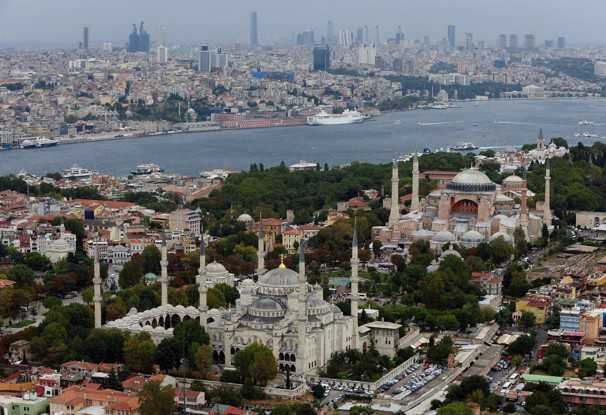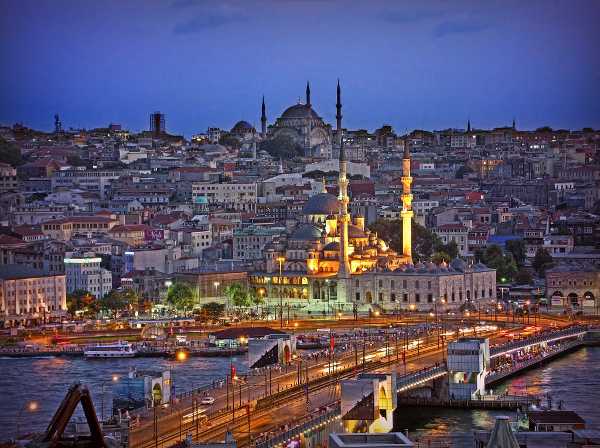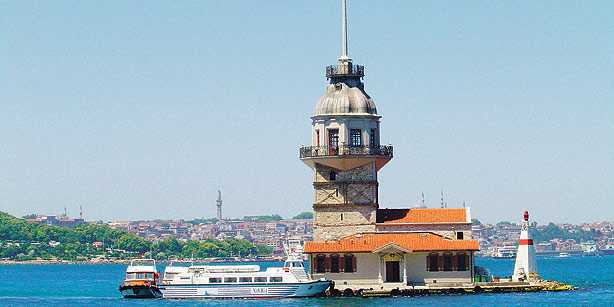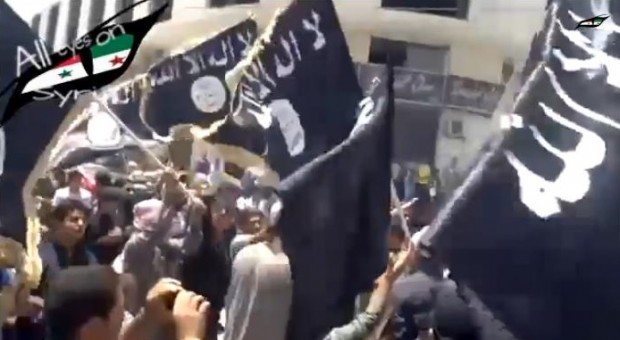The armed military confrontation between Russia and Georgia over South Ossetia and Abkhazia in August has produced major shockwaves throughout the Caucasus and beyond. Amid the suffering, the military clash may have shaken opportunities to resolve one of the “frozen conflicts” left over from the collapse of the USSR, the current state of cold war between Armenia and Azerbaijan in the aftermath of the 1988-1994 conflict over Karabakh.
One of the unpleasant diplomatic byproducts of the dispute for Armenia was Turkey’s decision in 1993 to close its 204 mile-long border with Armenia in a show of solidarity with Baku. Ankara consequently has no formal diplomatic ties with Yerevan, but following President Abdullah Gul’s “soccer diplomacy” last month, possibilities exist under Turkey’s proposed Caucasus Cooperation and Stability Platform to help break the diplomatic stalemate between the two Caucasian states.
On September 27 at the 63rd United Nations General Assembly meeting in New York, Turkish Foreign Minister Ali Babacan met with Armenian Foreign Minister Eduard Nalbandian and Azerbaijani Foreign Minister Elmar Mammadyarov for wide-ranging tripartite discussions that covered diplomacy, energy, and security (Anadolu Ajansi, September 26). In a sign of reciprocal flexibility, Armenian Foreign Minister Nalbandian said that Armenia welcomed the Caucasus Cooperation and Stability Platform initiative, adding that they also discussed the necessary steps to fully normalize bilateral relations.
In Yerevan the Turkish initiative is perceived as a move away from Ankara’s traditional unwavering support of Azerbaijan’s stance, with Turkey increasingly seeing normalization of relations with Armenia as key to expanding its role in the South Caucasus, leaving it the choice of continuing in its role of Azerbaijan’s patron or becoming a regional super power (Hayots Ashkharh, September 26).
One area in which Turkey exerts substantial influence is its armed forces; its army is the second largest in NATO. A recent NATO military exercise indicates both the possibilities of using the alliance to forge further trilateral links and the distance that yet remains. Armenia is participating in an international exercise held under NATO’s Partnership for Peace (PfP) affiliate program and a newer, complementary NATO program launched in June 2004, the Istanbul Cooperation Initiative (ICI).
The NATO Cooperative Longbow/Lancer-2008 (CO LW/CO LR 08) exercise began in Armenia on September 29 and will last through October 20. More than 1,000 servicemen from 18 nations (7 NATO members and 11 PfP partners) are involved in the exercises (www.cooperative08.com/News/news.htm). Besides the Armenian contingent, other nations contributing troops include Canada, Greece, Hungary, Lithuania, Poland, Britain, the United States, Albania, Austria, Bosnia-Herzegovina, the Czech Republic, Macedonia, Kazakhstan, Moldova, Ukraine, and ICI member United Arab Emirates (www.mil.am). Qatar, Serbia, and Montenegro have sent observers to the exercises.
The CO LW/CO LR 08 operative scenario is based on a UN mandated, NATO-led Crisis Response Operation (CRO), with COLW/ COLR 08 designed to provide a demonstration of NATO’s ability to undertake a complex operation displaying the interoperability of NATO and partner forces, providing a balance between NATO’s training requirements and the training needs of the PfP and ICI.
Notably, Turkey, a NATO member, is not involved, except for an officer who works for NATO’s international structures and who has arrived in Yerevan. Troops from PfP members Russia, Georgia, and Azerbaijan, all of which joined the program in 1994, will also not attend (Arminfo, September 29).
Armenian Defense Minister Seyran Ohanyan said, “We see Cooperative Longbow/Lancer-2008 as a means of strengthening trust throughout the region. It is a pleasure for Armenia to conduct an international exercise in its territory on the proper level. We are conducting this exercise to master our peacekeeping skills” , September 29). A source from NATO’s information center in Armenia said that the exercises “will be the biggest in the whole history of NATO’s relations with countries of the South Caucasus” (Itar-Tass, September 29).
Armenia’s Ministry of Defense press office reported that the Armenian army’s chief of staff Colonel General Yuri Khachaturov noted that the exercises were planned last year and would not affect the region’s geopolitical situation (Arminfo, September 26).
Russia, however, has been carefully considering Caucasian geopolitics. President Dmitry Medvedev recently stated, “Russia, just as other countries in the world, has regions of privileged interests” (Vesti Informatsionnyi Kanal, August 31). Elaborating on Medvedev’s words, Politika Foundation president Vyacheslav Nikonov said in Moscow, “Russia’s zone of privileged, vital interests consists primarily of the states of the Collective Security Treaty Organization and Ukraine (Argumenty i Fakty, September 26).
Undoubtedly driving the new diplomatic flexibility is a common concern shared by both Armenia and Turkey—Russia’s dominance of their natural gas imports. Gazprom supplies nearly 65 percent of Turkey’s gas and almost all of Armenia’s, and the Kremlin has not hesitated to use its “gas weapon.” Last month Gazprom Board Chairman Alexei Miller met with ArmRosgazprom Director General Karen Karapetyan to discuss Gazprom raising its natural gas prices to Armenia to the level it charges its European customers by 2011. Gazprom not only owns 68 percent of ArmRosgazprom and provides the gas but also participates in its transport and distribution throughout the republic , September 17). Gazprom, which currently charges Armenia $110 per thousand cubic meters (tcm) of gas, will raise the price 40 percent to $154 starting April 1, 2009.
For both Armenia and Turkey, neighboring Azerbaijan’s rising natural gas production would provide an energy godsend free of Moscow’s influence, giving both countries the added benefit of collecting transit revenues for surplus production. Moreover, the recent military clash starkly reminded Baku of the vulnerability of its current export options.
Turkey’s agenda extends beyond regional energy security. During President Gul’s bilateral meetings in New York, he lobbied heavily for Turkey’s candidacy for a non-permanent seat on the U.N. Security Council for the 2009-2010 term (Hurriyet, September 29). It is an initiative that all of Turkey’s neighbors would be wise to support.
Spiraling energy costs are introducing a new pragmatism into a region where politics has frequently been suborned to emotional nationalist agendas. In an era when energy superpowers talk about “privileged interests,” discussing regional Cooperation and Stability Platforms has a far less threatening tone than Russia’s military operations in the Caucasus. If the United Nations cannot provide the sole agenda for tripartite discussions, then perhaps the NATO, PfP, and ICI initiatives can assist, since in the 59 years that the alliance has been in existence, no two members have ever fought each other.






